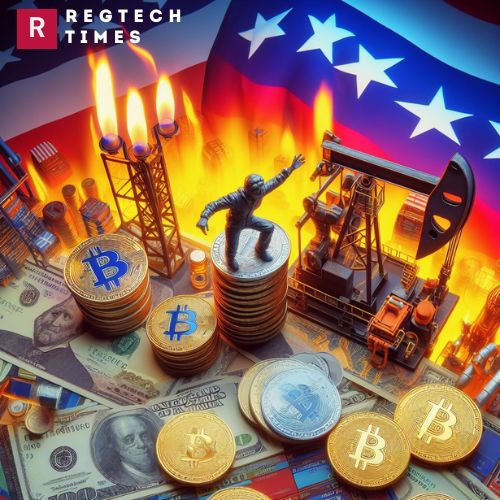Venezuela, once hailed for its abundant oil wealth, now grapples with a scandal of profound proportions. High-ranking officials, including notable figures such as Tareck El Aissami, Simon Alejandro Zerpa, and Samark Lopez, stand accused of orchestrating a complex scheme involving the embezzlement of funds from unregistered oil sales. Cryptocurrencies, once heralded for their potential to revolutionize finance, have become a tool of deception, shrouding the illicit activities of those involved. In this article, we delve into the intricate details of this operation and its implications for both Venezuela’s economy and the wider cryptocurrency industry.
Background for Venezuela’s Oil Scandal
Venezuela’s oil industry, epitomized by the state-owned company PDVSA, has been a cornerstone of the nation’s economy for a long time. However, facing international sanctions and economic turmoil, officials sought alternative avenues for conducting oil transactions. Amid these challenges, the government turned to cryptocurrencies as a means to circumvent restrictions and accumulate digital assets, including Bitcoin and Ethereum. The allure of crypto lay in its promise of anonymity and cross-border transactions, but little did they know that it would also become a double-edged sword.
The Money Laundering Scheme
1. Oil Sales and Embezzlement
Unregistered oil sales served as the conduit for illicit gains, with funds allegedly siphoned off through elaborate embezzlement schemes, bypassing national oversight measures. The former President of PDVSA, Tareck El Aissami, and others exploited the system, sidestepping standard procedures under the pretense of sanctions against the Venezuelan government.
2. Crypto’s Role
Cryptocurrencies emerged as key facilitators in this illicit scheme, offering anonymity and complicating the efforts of investigators. Platforms like Kraken, a prominent U.S.-based exchange, were allegedly utilized to launder funds, making detection exceedingly difficult and obfuscating the paper trail. The involvement of digital currencies allowed the perpetrators to operate “undetectable” transactions, evading scrutiny from national oversight organizations.
3. Investment in Crypto Mining Farms
- The stolen funds found their way into cryptocurrency mining operations within Venezuela. This diversion served dual purposes: laundering the illicit gains while also bolstering the country’s crypto-mining infrastructure.
- Tareck El Aissami, with full knowledge, directed these investments, further entrenching the illicit activity within the nation’s economy.
Government Crackdown
1. Arrests and Detentions
- The recent apprehensions of figures such as El Aissami, Zerpa, and Lopez mark a significant breakthrough in the investigation, shedding light on the extent of corruption within the Venezuelan government.
- Their arrests, along with previous detentions like that of Joselit Ramirez, underscore the scale of the alleged malfeasance and the depth of the illicit activities.
2. Billions Lost
- While exact figures remain undisclosed, reports suggest nearly $20 billion in losses due to unregistered oil sales.
- Cryptocurrency transactions played a pivotal role in facilitating the laundering process, further exacerbating the financial impact and highlighting the vulnerabilities within the financial system.
International Implications
1. Public Acknowledgment
- This marks the first instance where the Venezuelan government has publicly acknowledged the role of cryptocurrencies in completing crude payments.
- Previous cases hint at the use of cryptocurrencies to broker Venezuelan oil sales, but this revelation brings the issue to the forefront.
2. Regulatory Challenges
- The case underscores the need for robust oversight and regulation in the crypto space.
- Striking the right balance between privacy and security remains a challenge for regulators worldwide.
The Venezuelan scandal serves as a wake-up call for regulators worldwide. Striking the right balance between innovation and security is crucial. As cryptocurrencies continue to evolve, robust frameworks must be established to prevent misuse and ensure transparency. While the promise of digital assets remains alluring, vigilance and foresight are essential to navigate this evolving landscape. The unraveling of Venezuela’s crypto money laundering web underscores the urgent need for comprehensive regulation and global cooperation.


